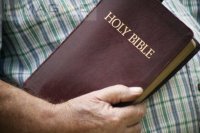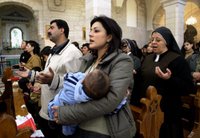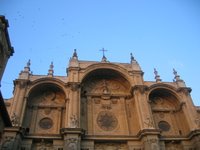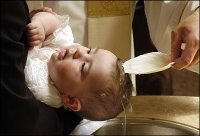 By Paul Dion, STL
By Paul Dion, STLBible studies for Catholics are neither numerous nor well appreciated. Catholics are generally satisfied with complying with the obligation of attending Mass once a week on Sunday and then going on their way.
Many Catholics (dare I say MOST?) don't know the difference between John 1;1 and Genesis 1;1. Careful, you all, that's a trick question. I do know that most Catholics know the basic Bible stories.
I also know that if you ask them whether or not the story that they have just identified is from the Old Testament or the New Testament, they would hem and haw and venture a guess, but not produce a solid, assured answer.
I also know that Catholics generally will not set time aside to participate in a neighborhood Bible Study Group. They have "too many other things to do." Besides, they go to Mass, don't they? They'll hear what the priest has to say about it on Sunday. It's the Church's job to tell me what the Bible means.
It is also true though, that there are Catholics who seek Catholic Bible Study Groups and often to no avail. These are the same Catholics who will ultimately find a Bible Study Group composed of spiritually minded people from other religions. Since it is essentlally the "same Bible", isn't it?
These Catholics will attend, with a slight twitch of conscience, but with the rationalization that it is better than what they could find in their own Catholic Community.
All of this having been said, the burning question is: SHOULD CATHOLICS JOIN NON-CATHOLIC BIBLE STUDIES?
We want your response. Now is your chance to sound off. If your response includes a commitment, rest assured that this is the place where your sacrifice will be accepted and offered to God and Community.
Stay tuned.






























